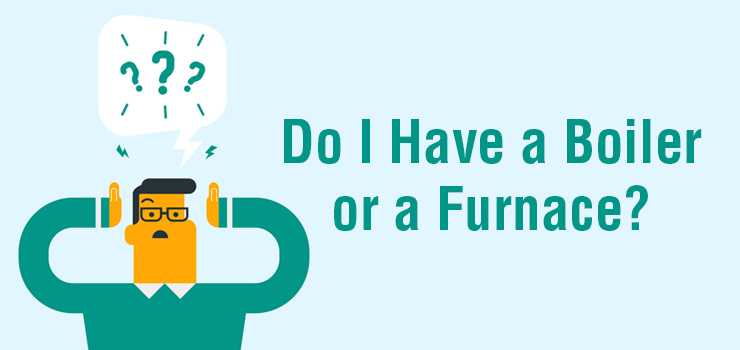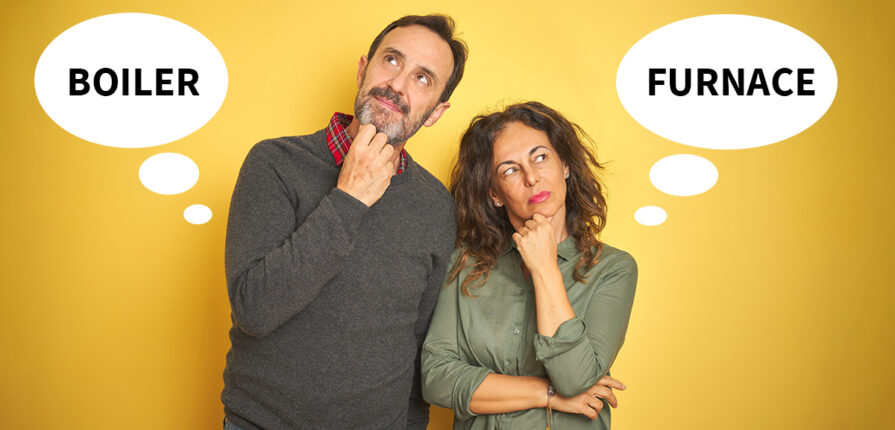Boiler and Furnace
The price of energy rises with each passing year. It’s important to know where your money is going when it comes to heating your home. Whether you are making a decision on a heating system for a new home, considering a switch, or just curious, we’re answering the question: “what’s the difference between a boiler and a furnace?”
What exactly is the difference between a boiler and furnace?
- Boilers use hot water or steam from hot water to heat your home. This is pumped through radiant flooring systems or radiators throughout your home to heat it.
- Furnaces use warm air that is circulated via a system of duct work throughout your home to heat it.
How are boilers and furnaces powered and maintained?
- Boilers powered with natural gas, oil electricity or sometimes wood pellets. They require little to no maintenance other than an annual tune-up by a certified technician
- However, BOTH boilers and furnaces should be checked once a year by a certified technician to reduce the risk of carbon monoxide poisoning or any natural gas leaks.

What are the pros and cons of boilers and furnaces?
- Boiler pros are that the heat is much more comfortable. They are less noisy than furnaces, more energy-efficient, provide better home air quality, require no duct work, and any water heat by boilers can reuse. Some cons to boilers are that they are more expensive and damage from any leaks can be extensive and costly to remedy.
- Furnace pros are that they are lower in cost and take less time to install. They also have less of a chance to freeze during the winter. Some cons include that they can create a drafty environment, run the risk of valve leaks and can be potentially problematic for homeowners with allergies.

Now that you are aware of the differences between boilers and furnace, you will be better prepare to understand any potential problems with your heating system when they arise, or if purchasing a new heating system, figure out which one is best for you and your home heating needs.


